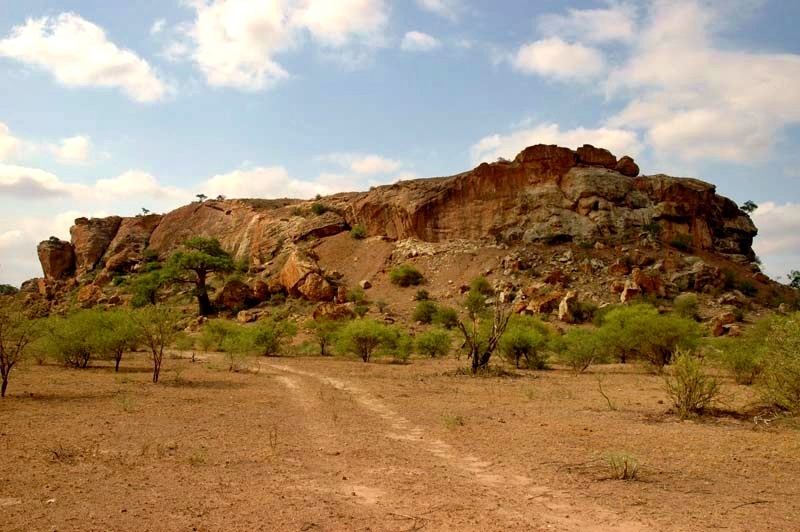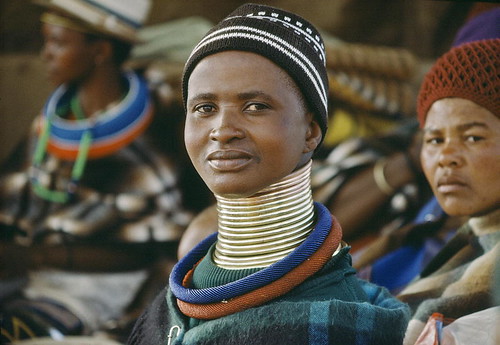Adopting from South Africa
Contents
South Africa Adoption Alert
Notice: Adoptions from South Africa to Begin With Approval of U.S. Adoption Service Providers (July 5, 2012)
On June 6, 2012, the Department of State’s Special Advisor for Children’s Issues, Susan Jacobs, and U.S. Consulate General Johannesburg officials met with the South African Ministry of Social Development’s Central Authority (SACA) to clarify South African intercountry adoption procedures. SACA confirmed that it has authorized two U.S. accredited adoption service providers (ASPs) to contract with South African agencies to process Hague Adoption Convention (Convention) adoptions from South Africa to the United States.
The two U.S. ASPs are Bethany Christian Services and Spence-Chapin Services to Families and Children. Both ASPs may now accept applications for adoptions.
SACA also clarified the options available for dual citizens. U.S. citizen prospective adoptive parents residing in the United States must follow the Convention intercountry adoption process if they wish to adopt from South Africa, regardless of whether one or both prospective adoptive parents hold South African citizenship. U.S. citizens resident in South Africa who wish to adopt may be able to conclude a Convention adoption if they plan to bring their adopted child to the United States to live, or may conclude a domesticadoption after meeting South Africa’s five-year residency requirement if they intend to continue residing abroad. In cases where one spouse is a South African citizen, the five-year residency requirement may be waived.
The U.S. Department of State is pleased to have the opportunity to work with South Africa as a Convention partner and to complete Convention intercountry adoptions of eligible children from South Africa by qualified adoptive parents in the United States. Please continue to monitor adoption.state.gov as we update the country information sheet on adoptions from South Africa.
Hague Convention Information
Africa is party to the Hague Convention on Protection of Children and Co-operation in Respect of Intercountry Adoption (Hague Adoption Convention). Therefore all intercountry adoptions between South Africa and the United States must meet the requirements of the Convention and U.S. law implementing the Convention.
South African law recognizes two kinds of adoptions by foreigners:
- 1. Local adoptions of children resident in South Africa by foreign residents of South Africa, and
- 2. Intercountry adoptions of children resident in South Africa by foreign citizens residing abroad.
The first category (“non-Hague adoption”) requires the foreign adoptive parent(s) to be resident for five years in South Africa, and the adoptions are handled by an accredited agency and finalized by the Department of Social Development under laws relating to local adoptions. Note: Under applicable U.S. laws and regulations, children adopted in non-Hague adoptions will only be eligible for immigration to the United States after a waiting period of two years’ residence and two years’ legal custody with the adoptive parent(s).
The second category (“Hague adoption”) is only available to citizens of countries with a working agreement between the prospective adoptive parent’s country of origin and South Africa. As of this writing, there have been no working agreements finalized between South African and U.S. adoption service providers. Please contact the U.S. Consulate Johannesburg Immigrant Visa Unit (contact information below) for the latest information regarding adoption in South Africa.
There have been a number of cases in which American Citizens have been issued “Guardianship Orders” from the South African High Court. These orders do not constitute “irrevocable release for adoption and immigration” as required by United States Immigration Law. As such, they cannot be used for immigration purposes.
NOTE: Special transition provisions apply to adoptions initiated before April 1, 2008. Learn more.
Who Can Adopt
Adoption between the United States and South Africa is governed by the Hague Adoption Convention. Therefore to adopt from South Africa, you must first be found eligible to adopt by the U.S. Government. The U.S. Government agency responsible for making this determination is the Department of Homeland Security, U.S. Citizenship and Immigration Services (USCIS). Learn more.
In addition to these U.S. requirements for prospective adoptive parents, South Africa also has the following requirements for prospective adoptive parents:
Residency
None specified.
Age of Adopting Parents
The adoptive parent(s) must be over the age of 18.
Marriage
None. Both married couples and partners in a life partnership (including same-sex partners) can jointly adopt a child and a single person may also adopt individually or adopt a stepchild following marriage to the child’s biological parent.
Income
There are no specific income requirements for adoption in South Africa. The adoptive parents must satisfy the Commissioner of child welfare that they can support and educate the child before an adoption order is issued.
Other
Eligibility requirements beyond those above change based on the circumstances of the case. In addition, family members will be given preference over non-relatives, regardless of age.
Who Can Be Adopted
Because South Africa is party to the Hague Adoption Convention, children from South Africa must meet the requirements of the Convention in order to be eligible for adoption. For example, the Convention requires that South Africa attempt to place a child with a family in-country before determining that a child is eligible for intercountry adoption. In addition to South Africa’s requirements, a child must meet the definition of a Convention adoptee for you to bring him or her back to the United States.
ELIGIBILITY REQUIREMENTS:
The consent of the child’s biological father, except in cases of rape and incest, must be obtained before a child born out of wedlock is placed for adoption. Unmarried fathers have the right to apply for access, custody or guardianship. Previously, only the consent of the biological mother was required. A married or divorced biological father can prevent his wife or former wife from relinquishing their child(ren) for adoption.
According to South African law, a child born to parents who are not married to each other at the time of birth is considered illegitimate. A child born to unmarried parents becomes legitimate as soon as his/her biological parents marry. Normally, the mother of an illegitimate child is not only the legal guardian of her child, but also has custody even if she herself is still a minor. Only if it is proven that she is unfit to have custody can the child be taken from her and placed in alternative custody. Under current laws, an illegitimate child may take the surname of its father only if the father has formally acknowledged parentage of the child in the birth register. The mother alone has the right to decide the child’s name.
Relinquishment Requirements: If one or both of the child’s parents are alive and can be found, they must both provide written consent to the adoption.
Abandonment Requirements: A child whose parents are both dead or who has been abandoned is available for adoption. In the case of the parents’ death, government-issued death certificates must be obtained to demonstrate the child’s status as an orphan. If the child has been abandoned, some evidence of abandonment may be required.
Age Requirements: The child must be under 18 years of age.
Sibling Requirements: None specified.
Requirements for Special Needs or Medical Conditions: South African law does not require adoption agencies to disclose whether a child is HIV-positive. There is no legal requirement for prospective parents to be tested for HIV; however, adoption agencies may require HIV testing for the child, the natural mother and/or the adoptive parents before proceeding with a placement.
Waiting Period: None specified.
How to Adopt
Adoption Authority
The Process
Traveling Abroad
Applying for Your U.S. Passport
A valid U.S. passport is required to enter and leave South Africa. Only the U.S. Department of State has the authority to grant, issue, or verify U.S. passports. Getting or renewing a passport is easy. The Passport Application Wizard will help you determine which passport form you need, help you to complete the form online, estimate your payment, and generate the form for you to print-all in one place.
Obtaining Your Visa
In addition to a U.S. passport, you also need to obtain a visa. A visa is an official document issued by a foreign country that formally allows you to visit. Where required, visas are attached to your passport and allow you to enter a foreign nation. To find information about obtaining a visa for South Africa, see the Department of State's Country Specific Information.
Staying Safe on Your Trip
Before you travel, it's always a good practice to investigate the local conditions, laws, political landscape, and culture of the country. The State Department is a good place to start. The Department of State provides Country Specific Information for every country of the world about various issues, including the health conditions, crime, unusual currency or entry requirements, and any areas of instability.
Staying in Touch on Your Trip
When traveling during the adoption process, we encourage you to register your trip with the Department of State. Travel registration makes it possible to contact you if necessary. Whether there's a family emergency in the United States, or a crisis in South Africa, registration assists the U.S. Embassy or Consulate in reaching you. Registration is free and can be done online.
After Adoption
What resources are available to assist families after the adoption?
Many adoptive parents find it important to find support after the adoption. Take advantage of all the resources available to your family -- whether it's another adoptive family, a support group, an advocacy organization, or your religious or community services.
Here are some good places to start your support group search:
Child Welfare Information Gateway
North American Council on Adoptable Children
Adoption Services Support Group for Adopting Persons
SOURCE
Intercountry Adoption, Bureau of Consular Affairs. U.S. Department of State Country Information










